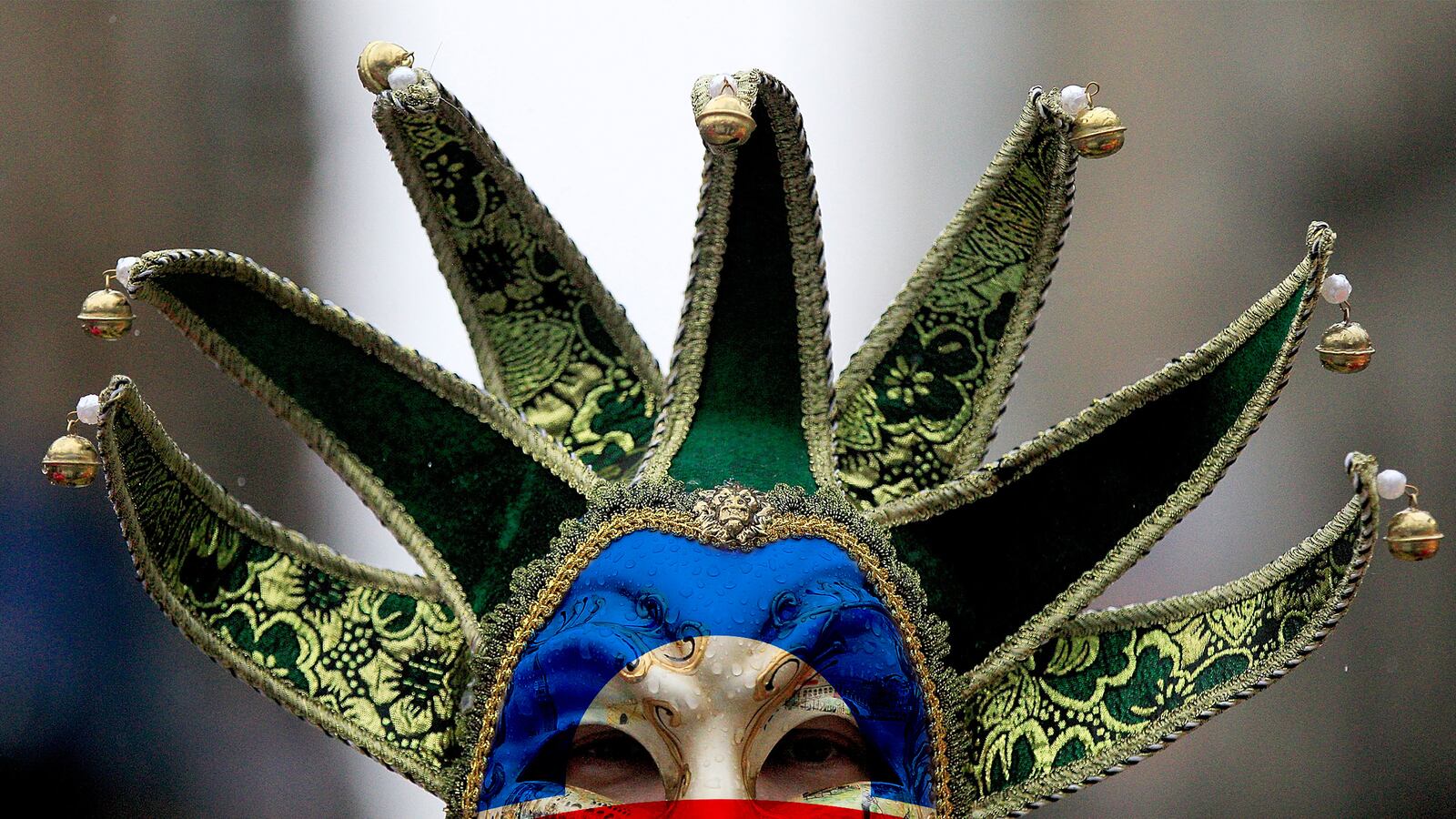It’s a steamy Friday night in September on the fabled Frenchmen Street in New Orleans. The Soul Rebels are tearing it up at the Blue Nile, a jam-packed cavernous music club where about 200 sweaty bodies dance to the eight-piece brass band’s funkadelic rhythms. Sousaphonist Edward Lee, a big teddy bear of a guy with long dreadlocks, puffs out his cheeks as he belts out the rumbling backbeat on the tuba-like instrument wrapped snugly around his beefy torso. The thunderous sounds of trumpets, trombones, drums, and a wailing sax spill out into the sultry night where throngs of fans are congregated on the sidewalk.
But what the enraptured audience doesn’t know is the punishing physical toll of making this hard-driving music every night, sometimes 250-300 concert dates a year, here in New Orleans and around the world. “Playing this loud is making me sick,” Lee said a few days earlier when we talked at the New Orleans Musicians’ Clinic, which provides free or low cost care to the city’s musical artists. Even though he’s only 28, Lee already has severe gastrointestinal pains from horn playing, and just forked over $200 to see a specialist to find out what’s ailing him.
But what worries Lee even more is that he no longer has health insurance because of Governor Bobby Jindal’s refusal to take the Medicaid expansion dollars offered under the Affordable Care Act (ACA). Sure, he can get medical care gratis at the clinic when he’s in New Orleans, but once he hits the road—which he’s on for 200 days or more out of the year—he’s out of luck. “This is a catastrophic financial issue for everyone in the band,” Lee tells me, “and for just about all the musicians I know.”
Unfortunately, Lee is in the same position as about 242,000 other Louisiana residents who have been pushed into the so-called “sacrifice zone,” according to estimates by the Kaiser Family Foundation. The Medicaid expansion was designed to cover tens of thousands of families who earn too much money for Medicaid under the old formula but can’t afford to buy a private policy and don’t get health insurance through their jobs. But in states like Louisiana that have turned down the extra Medicaid dollars, people like Edward Lee who make less than 100 percent of the federal poverty level ($11,670 for a single person; $23, 850 for a family of four) will not be covered or receive federal help in federal subsidies for insurance. “The poorest of the poor—that’s really the population we’re dealing with,” says Jonathan E. Chapman, executive director of the Louisiana Primary Care Association, which represents more than two-dozen community health centers in the state. “Almost 250,000 adults in our state make just enough to not qualify for Medicaid but yet don’t make enough to be eligible for subsidies on the marketplace.”
Under provisions of the ACA, the federal government would pony up 100 percent of the costs for the first three years to expand Medicaid, and then states would eventually pay a 10 percent share that would be phased in over several years. Governor Bobby Jindal insists it would be too costly for the state, whose share would total nearly $2 billion over 10 years. State officials also estimate an additional 174,000 people would drop their current coverage in order to enroll in Medicaid. “Because of the influx of new enrollees, it would end up costing the state an additional $2 billion,” says Calder Lynch, chief of staff of the Louisiana Department of Health and Hospitals. “This is something we just can’t afford.”
But other projections estimate the expansion would have brought in as much as $16 billion in federal funding, creating 15,600 jobs and boosting local economies across the state. “Refusing to accept the money was a terrible decision,” New Orleans’ local newspaper, the Times-Picayune, opined in a recent editorial. And it’s not just Louisiana that’s losing out on this huge pot of money. The 24 states that have not expanded Medicaid, including Republican-controlled holdouts like Texas, Georgia, North Carolina and Tennessee, are foregoing $423 billion in federal funds. Their hospitals are also slated to lose $167 billion in Medicaid funding, according to an August 2014 report by the Robert Wood Johnson Foundation’s Urban Institute.
However, the real costs will be in thousands of lost human lives, a joint Harvard-CUNY study revealed earlier this year. Researchers found that because of the states’ opting out of the expansion, 7.78 million people who would have gained coverage will remain uninsured, causing up to 17,000 more avoidable deaths because sickly patients get care too late. “The results were sobering,” said Samuel Dickman, the study’s lead author and a medical student at Harvard Medical School, in a press release. “Political decisions have consequences, some of them lethal.”
And in Louisiana, residents’ health was hardly stellar to begin with: many suffer from exceedingly poor health that is often worse than that in many developing countries. Louisiana ranks dead last or near the bottom on a long laundry list of benchmarks, including the prevalence of smoking and obesity; deaths from heart disease and cancer; rates of infant mortality, asthma, and diabetes; preventable hospitalizations; and percentage of people without health care insurance. “We’ve always had a high uninsured population and high numbers of the poor,” says Jan Moller, director of the Louisiana Budget Project, which monitors and reports on state government spending. “The hope after the ACA was that this was finally going to change. But what this governor has done is double down on the status quo—instead of moving to a 21st century model that a broad consensus says is the better way to go to improve outcomes.”
Jindal’s hard line stance, which many attribute to a rumored White House run when his term expires at the end of 2015, is fueling a growing backlash. “This is tantamount to killing people,” said one community activist at rally in September at the statehouse in Baton Rouge where two-dozen ministers, doctors, nurses, and public health advocates presented the governor with 10,000 letters urging him to expand Medicaid. And on the I-10 between Baton Rouge and Port Allen, the left leaning MoveOn.org erected a billboard with the same colors and font as the state of Louisiana’s “Pick Your Passion” tourism campaign, but with the tagline: “But hope you don’t love your health. Jindal’s denying Medicaid to 242,000 people.” State officials were not amused, and are suing the advocacy group for copyright infringement.
Already, the loss of revenue is straining the system. In late August, Baton Rouge General Mid-City Hospital was so inundated with uninsured patients that it announced plans to shutter its ER—until lawmakers found $18 million to keep the doors open. But this is a stopgap measure, and Baton Rouge General’s financial troubles are just the beginning of an ominous trend as hospitals struggle to care for the state’s swelling ranks of uninsured. Even the nonprofit New Orleans Musicians’ Clinic, which is no longer reimbursed for most of the vital medical care it provides to its 2,500 patients, is now operating at a $500,000 deficit for the first time since it opened in 1998.
But Bethany Bultman, the clinic's founder and director, is committed to ensuring patients stay alive. “We're not going to turn anyone away," she says. "These patients would have been covered under the Medicaid expansion. What we’re doing now is financially unsustainable and there is a danger going forward. Just because a state doesn’t take Medicaid expansion doesn’t mean their citizens stop getting sick. They’ll still show up in the hospital and in the emergency room and that care still costs. In some cases, it even costs the patients their lives.”






